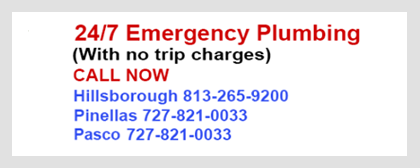Why hurricane-ready plumbing matters in Tampa
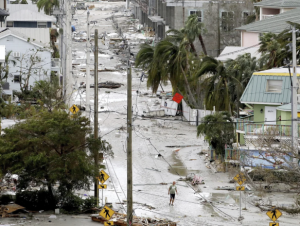 When the Gulf stirs, Tampa homeowners think windows, roofs, and generators. But one system can multiply damage in minutes if it’s not ready: your plumbing. Storm surges push water the wrong way. Power loss stalls pumps. Sudden pressure changes stress old shutoff valves and supply lines. With over 20 years serving Tampa, Cass Plumbing has seen the difference hurricane-ready plumbing makes—less mess, faster recovery, and lower repair costs.
When the Gulf stirs, Tampa homeowners think windows, roofs, and generators. But one system can multiply damage in minutes if it’s not ready: your plumbing. Storm surges push water the wrong way. Power loss stalls pumps. Sudden pressure changes stress old shutoff valves and supply lines. With over 20 years serving Tampa, Cass Plumbing has seen the difference hurricane-ready plumbing makes—less mess, faster recovery, and lower repair costs.
1) Map your shutoffs like a pilot’s pre-flight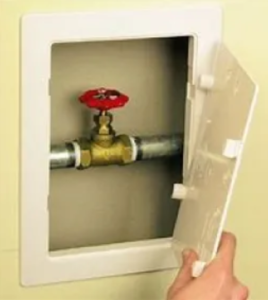 Find and tag the main water shutoff, water heater valve, and key appliance stops (icemaker, dishwasher, washing machine). Make a simple “Shutoff Map” taped inside a kitchen or garage cabinet so any family member can act fast. If your main valve is a crusty old gate valve, consider upgrading to a quarter-turn ball valve—it’s faster, more reliable, and obvious when it’s off.
Find and tag the main water shutoff, water heater valve, and key appliance stops (icemaker, dishwasher, washing machine). Make a simple “Shutoff Map” taped inside a kitchen or garage cabinet so any family member can act fast. If your main valve is a crusty old gate valve, consider upgrading to a quarter-turn ball valve—it’s faster, more reliable, and obvious when it’s off.
2) Backflow prevention: the unsung hero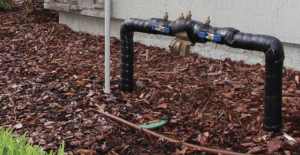 Storm surges and overwhelmed municipal systems can push contaminated water toward your home. A properly maintained backflow preventer on irrigation and certain service lines is your firewall. Cass Plumbing tests, repairs, and certifies backflow devices, and can recommend additional point-of-entry protections if your elevation and neighborhood history warrant it.
Storm surges and overwhelmed municipal systems can push contaminated water toward your home. A properly maintained backflow preventer on irrigation and certain service lines is your firewall. Cass Plumbing tests, repairs, and certifies backflow devices, and can recommend additional point-of-entry protections if your elevation and neighborhood history warrant it.
3) Flood-smart drains & cleanouts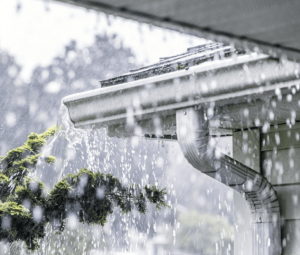 Gutter downspouts and yard drains should carry water away from your foundation—not toward it. We snake, jet, and camera-inspect exterior lines to verify slope, remove roots/sediment, and add accessible cleanouts. Consider one-way backwater valves on vulnerable sewer laterals to stop sewage from surging indoors. (They’re code-permitted and can be a lifesaver in low-lying streets.)
Gutter downspouts and yard drains should carry water away from your foundation—not toward it. We snake, jet, and camera-inspect exterior lines to verify slope, remove roots/sediment, and add accessible cleanouts. Consider one-way backwater valves on vulnerable sewer laterals to stop sewage from surging indoors. (They’re code-permitted and can be a lifesaver in low-lying streets.)
4) Sump pumps & battery backups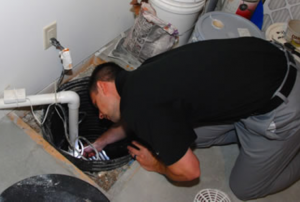 If your property takes on groundwater, a sump basin with an efficient pump is essential. Pair it with a battery backup (or generator circuit) so it runs when the power doesn’t. Cass Plumbing sizes pumps to the site, adds high-water alarms, and routes discharge lines so you’re not recirculating water back into the foundation.
If your property takes on groundwater, a sump basin with an efficient pump is essential. Pair it with a battery backup (or generator circuit) so it runs when the power doesn’t. Cass Plumbing sizes pumps to the site, adds high-water alarms, and routes discharge lines so you’re not recirculating water back into the foundation.
5) Secure water heaters & elevate when smart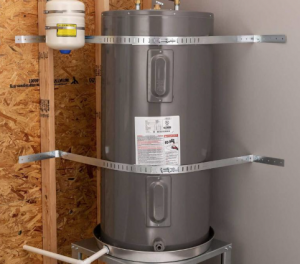 Strap tank-type heaters, verify seismic brackets, and check drip pans and safe drain routes. In flood-prone garages or low utility areas, ask about elevating appliances to protect burners/electronics from shallow water. If you’ve been considering a tankless upgrade, we’ll discuss weather-protected venting and surge protection for electronics.
Strap tank-type heaters, verify seismic brackets, and check drip pans and safe drain routes. In flood-prone garages or low utility areas, ask about elevating appliances to protect burners/electronics from shallow water. If you’ve been considering a tankless upgrade, we’ll discuss weather-protected venting and surge protection for electronics.
6) Supply lines & connections: small parts, big leaks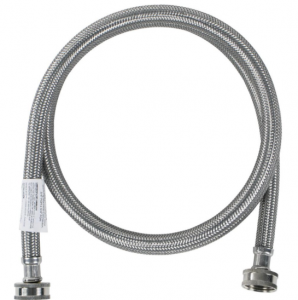 Replace aging, braided or rubber supply lines with stainless-steel or manufacturer-recommended lines—especially to toilets, icemakers, and washing machines. Tighten gently, never overtighten, and verify hammer arrestors where needed to tame pressure spikes.
Replace aging, braided or rubber supply lines with stainless-steel or manufacturer-recommended lines—especially to toilets, icemakers, and washing machines. Tighten gently, never overtighten, and verify hammer arrestors where needed to tame pressure spikes.
7) Emergency kit: plumbing edition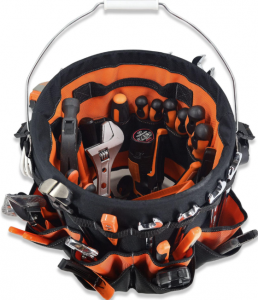 Keep a dedicated plumbing go-bag: valve key, plumber’s tape, flashlight, gloves, heavy-duty trash bags, zip ties, towels, and a laminated shutoff map. Add contact info for Cass Plumbing so you’re not searching when minutes matter.
Keep a dedicated plumbing go-bag: valve key, plumber’s tape, flashlight, gloves, heavy-duty trash bags, zip ties, towels, and a laminated shutoff map. Add contact info for Cass Plumbing so you’re not searching when minutes matter.
8) Post-storm inspection checklist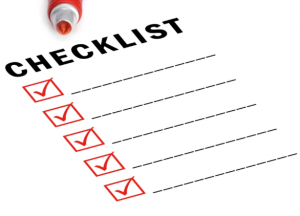 After the storm, turn water back on slowly and listen: toilets that refill unexpectedly, hissing at the meter, dripping at the heater. Run showers/tubs, then check ceilings below. We offer post-storm safety checks—including thermal imaging and camera inspections—to catch hidden leaks and infiltration early.
After the storm, turn water back on slowly and listen: toilets that refill unexpectedly, hissing at the meter, dripping at the heater. Run showers/tubs, then check ceilings below. We offer post-storm safety checks—including thermal imaging and camera inspections—to catch hidden leaks and infiltration early.
Why Tampa trusts Cass Plumbing
-
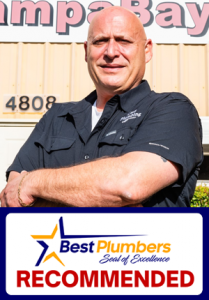 Local & family-owned: 20+ years serving Tampa homes & businesses
Local & family-owned: 20+ years serving Tampa homes & businesses -
Top-rated: A+ BBB rating and 1,000+ 5-star reviews
-
Recommended by Best Plumbers: the #1 plumbing directory on the Internet
-
Full service: from backflow to sump, camera inspections to whole-home shutoff upgrades
Call to Action
Hurricane season isn’t a date—it’s a readiness level. Schedule a hurricane-ready plumbing check with Cass Plumbing and protect your home before the next forecast turns red.
 FAQs (include FAQPage schema on the page)
FAQs (include FAQPage schema on the page)
Q: Do I really need a backwater valve in Tampa?
A: If your street or neighborhood has a history of sewer backups during storms—or your home sits lower than the road—yes, a backwater valve can prevent a raw-sewage disaster.
Q: How often should I test my backflow device?
A: Typically once per year, or as local code requires. Cass Plumbing tests, repairs, and files the paperwork.
Q: Tankless or tank during hurricane season?
A: Either can be reliable when installed and protected correctly. We review generator/battery options, surge protection, and safe venting for your site.



